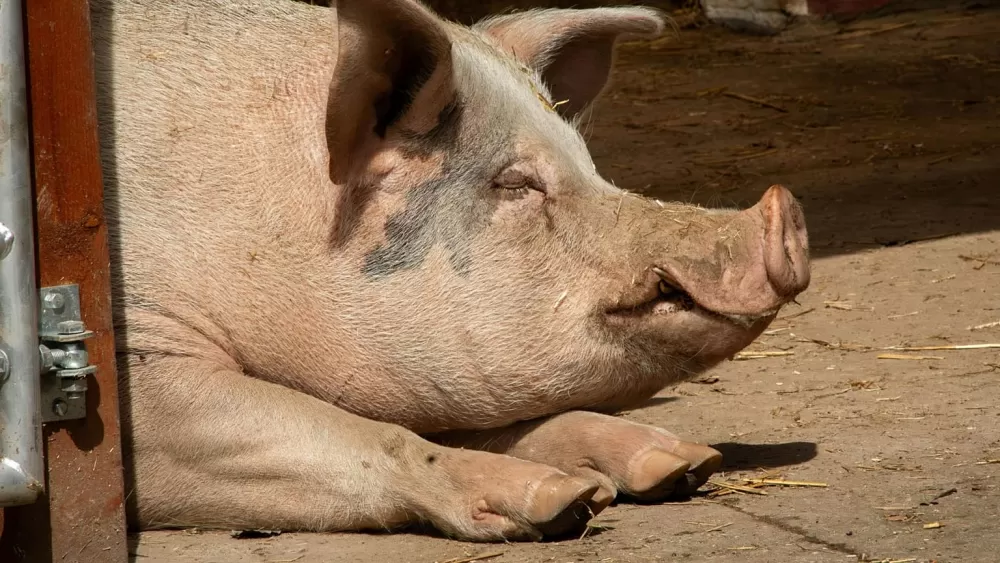World's First Pig-to-Human Liver Transplant Extends Life for 171 Days in Historic Medical Breakthrough
Share- Nishadil
- October 09, 2025
- 0 Comments
- 3 minutes read
- 51 Views

Groundbreaking Pig Liver Transplant Sustains Human Life for 171 Days, Offering New Hope
In an unprecedented medical achievement, a patient receiving a genetically modified pig liver transplant survived for 171 days, providing vital insights into xenotransplantation's future.
The global organ shortage crisis is a grim reality, with thousands of lives hanging in the balance, awaiting a compatible donor. For decades, scientists have pursued the tantalizing prospect of xenotransplantation—using animal organs for human patients—as a potential lifeline. Now, the medical community is buzzing with news of a groundbreaking achievement that has pushed the boundaries of this field further than ever before.
In a truly monumental medical first, a patient has successfully lived for an astonishing 171 days following a pioneering transplant of a genetically modified pig liver.
This incredible feat, performed by a dedicated team of surgeons and researchers, represents a significant leap forward in the quest to alleviate the critical scarcity of human donor organs.
The recipient, whose identity remains protected for privacy, was suffering from end-stage liver disease with no other viable treatment options.
Faced with a desperate prognosis, the patient and their family opted for this experimental procedure, understanding the immense risks and the potential for unparalleled scientific learning. The pig liver, carefully selected and extensively modified genetically to minimize the risk of immune rejection, was successfully implanted.
For nearly six months, the transplanted organ performed its vital functions, sustaining the patient's life and providing invaluable data to the medical team.
This prolonged survival period—a record for a pig liver xenotransplant into a human—is a testament to the meticulous planning, advanced surgical techniques, and sophisticated immunosuppressive therapies employed. Every day of the 171 days provided unprecedented insights into how a xenograft functions within the human body, how the human immune system reacts over time, and the efficacy of anti-rejection protocols.
While the patient ultimately succumbed to complications unrelated to immediate organ rejection, the duration of survival has delivered a treasure trove of scientific understanding.
Researchers are now meticulously analyzing the data collected over these critical months, gleaning insights into cellular interactions, metabolic processes, and the long-term viability of genetically engineered animal organs. This information is crucial for refining future xenotransplantation efforts and overcoming the remaining hurdles, such as chronic rejection and potential zoonotic disease transmission.
This extraordinary achievement offers a powerful glimmer of hope for millions worldwide grappling with organ failure.
It underscores the incredible potential of biotechnology and medical innovation to transform healthcare. While much research and development still lie ahead, the 171-day milestone serves as a beacon, illuminating a promising path toward a future where a lack of donor organs no longer dictates life or death.
The medical community continues its work, inspired by this landmark case, to make xenotransplantation a routine and life-saving reality.
.- Health
- News
- UnitedKingdom
- HealthNews
- Ukraine
- France
- MedicalResearch
- Russia
- Ireland
- Iceland
- Denmark
- Sweden
- Medicine
- Germany
- Switzerland
- Belgium
- Italy
- Spain
- Poland
- Romania
- Greece
- Slovenia
- Pig
- Montenegro
- BosniaAndHerzegovina
- Cyprus
- Albania
- Malta
- Macedonia
- Moldova
- SanMarino
- Netherland
- Hungary
- Austria
- Norway
- Portugal
- Serbia
- Bulgaria
- CzechRepublic
- Latvia
- Lithuania
- Slovakia
- Andorra
- Kosovo
- Liechtenstein
- Finland
- Monaco
- Vatican
- Belarus
- Estonia
- Luxembourg
- Croatia
- MedicalBreakthrough
- LiverTransplant
- MedicalScience
- Transplant
- FutureOfMedicine
- Liver
- Xenotransplantation
- OrganShortage
- PigToHumanTransplant
- GeneticModification
- ImmuneRejection
- ImplantOfOrgans
- 171DaysSurvival
- PioneeringSurgery
Disclaimer: This article was generated in part using artificial intelligence and may contain errors or omissions. The content is provided for informational purposes only and does not constitute professional advice. We makes no representations or warranties regarding its accuracy, completeness, or reliability. Readers are advised to verify the information independently before relying on







